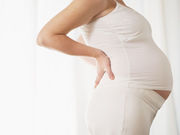After accounting for other factors that increase risk, the association disappeared
TUESDAY, April 18, 2017 (HealthDay News) — Taking antidepressants during pregnancy doesn’t appear to raise a child’s risk of autism, once other factors that could influence the risk are taken into account, according to two studies published in the April 18 issue of the Journal of the American Medical Association.
Simone Vigod, M.D., a psychiatrist at the Women’s College Hospital in Toronto, and colleagues reviewed data on 35,906 Canadian children, 2,837 of whom were exposed to antidepressants in the womb. About 2 percent of the children exposed to antidepressants were diagnosed with autism.
Another team performed a similar evaluation of 1,580,629 children born in Sweden. These researchers performed the sibling comparison and the comparison between mothers that was conducted in the other study. But they also conducted an analysis considering whether the children’s fathers had taken antidepressants during pregnancy.
Both teams came to the same conclusion: The increased risk of autism disappeared when all other factors were taken into account. “Regardless of whether associations between antidepressant use during pregnancy and autism spectrum disorder reflect drug effects or risks inherent to maternal mental health, efforts should focus on how best to promote optimal child health in ways that harness a child’s inherent developmental plasticity,” write the authors of an accompanying editorial.
Abstract/Full Text 1 (subscription or payment may be required)
Abstract/Full Text 2 (subscription or payment may be required)
Editorial (subscription or payment may be required)
Copyright © 2017 HealthDay. All rights reserved.








